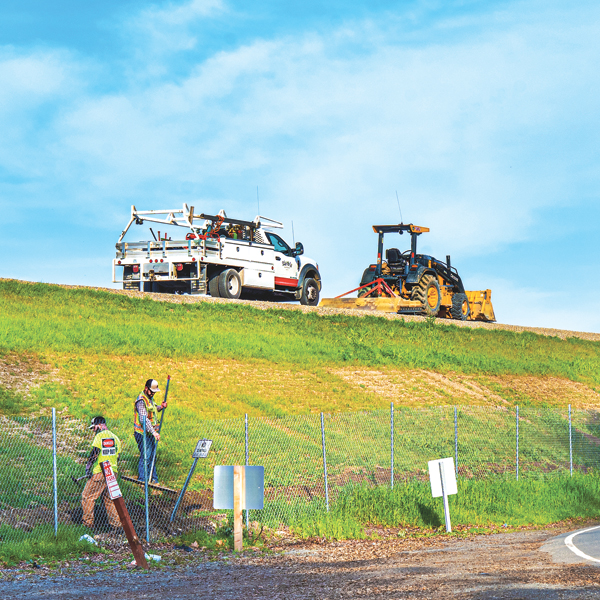A handful of residents near the Sacramento River levee portray themselves as victims, their safety imperiled by pedestrians, joggers and bicyclists. They want levee access closed.
Facts tell another story.
For decades, property owners along the river harassed, bullied and threatened anyone who walked on the levee in Pocket and Little Pocket. They even frightened flood prevention authorities.
Officials allowed illegal encroachments such as fences, stairs, retaining walls, plumbing and electrical gear to spread along the levee.

Decades of negligent oversight created a crisis in 2018, when the U.S. Army Corps of Engineers began the sprawling $1.8 billion levee repair project to save Sacramento from floods.
Hundreds of makeshift encroachments blocked the way. The mess had to go. But authorities were fearful of property owners near the levee—afraid they would impede essential work.
Officials contrived a scheme to pay off residents to not cause delays with phony complaints and nuisance lawsuits.
Documents obtained by Inside Sacramento show regional flood authorities paid 83 property owners $1.8 million to hasten encroachment removals. The average payout was $22,000.
No questions asked. Army Corps contractors handled the removals and levee repairs.
Some levee encroachments were built years ago with permits. Others lacked paperwork. They were sunk into the levee without regard for engineering or safety.
As the Corps moved forward, payoffs were approved for any encroachment within a property line. Even structures illegally installed.
The word “payoff” was too blunt for the Sacramento Area Flood Control Agency. The joint powers group works with the Army Corps, Central Valley Flood Protection Board and state Water Resources to keep the region safe from raging waters.
The flood control agency called the payoffs “a voluntary encroachment removal incentive program.”
“The incentive program provided SAFCA an effective tool to meet its obligations by providing (Army Corps) a construction footprint clear of encroachments in a timely manner,” Jay Davis, spokesman for the flood control agency, tells me in an email.
The flood agency’s ledger shows the extremes residents undertook to customize the levee. Property owners treated the city’s flood control system as a private playground behind their backyards.
They built retaining walls and irrigation systems. Installed concrete pavers. Wired electrical outlets. Strung lights.
Staircases were popular. Army Corps contractors tore out 86 staircases in Pocket and Little Pocket. Steps were dug into the levee on both sides.
Four cross-levee fences were removed. Levee fence clearances prompted several residents to take payoffs and still complain. They threatened lawsuits after cashing their checks.
They wanted the Army Corps to maintain construction fences after levee repairs were finished, hoping to stop public access for years to come. The Corps refused.
Property owners threatened legal trouble for the Central Valley Flood Protection Board. They demanded temporary fences.
They claimed public access to the levee amounted to a property seizure by the government—an audacious theory from people who took taxpayer dollars for fence removals.
Amazingly, flood protection board Executive Officer Chris Lief authorized several temporary replacement fences last year. His action appears to violate state law that requires public hearings and board approval for levee fences.
Lief tells me the fences are “minor alternations” and don’t need board approval—an opinion contradicted by the California Code of Regulations.
The biggest payoff went to a property owner on River Acres Drive in Pocket. Army Corps contractors extracted a utility pole. The owner got $116,579.
A Little Pocket resident on Piedmont Drive received $96,243 for not objecting when crews demolished two staircases, an irrigation system and utility equipment stuck in the levee.
Sacramento Area Flood Control Agency spokesman Davis said his board members “concluded the opportunity to accelerate the necessary levee improvements for the protection of life and property outweighed proceeding otherwise.”
Fair enough. But here’s the reality:
Authorities feared 83 property owners in Pocket and Little Pocket would delay levee repairs—endangering life and property—unless they got paid off.
R.E. Graswich can be reached at regraswich@icloud.com. Follow us on Facebook and Instagram: @insidesacramento.















